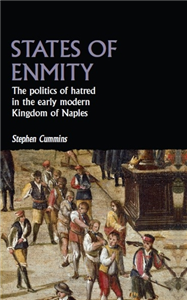Description
More Information
Rights Information
Albania, Algeria, Angola, Argentina, Armenia, Australia, Austria, Bahrain, Belgium, Belize, Benin, Bolivia, Bosnia and Herzegovina, Botswana, Brazil, Bulgaria, Burkina Faso, Burundi, Cameroon, Canada, Cape Verde, Central African Republic, Chad, Chile, China, Colombia, Comoros, Congo [DRC], Congo, Republic of the, Costa Rica, Ivory Coast, Croatia, Czech Republic, Denmark, Djibouti, Ecuador, Egypt, El Salvador, Equatorial Guinea, Eritrea, Estonia, Ethiopia, Faroe Islands, Finland, France, French Guiana, Gabon, Gambia, Georgia, Germany, Ghana, Greece, Guatemala, Guinea, Guinea-Bissau, Guyana, Honduras, Hongkong, Hungary, Iceland, India, Indonesia, Iran, Iraq, Ireland, Israel, Italy, Japan, Jordan, Kazakhstan, Kenya, Kuwait, Latvia, Lebanon, Lesotho, Liberia, Libya, Lithuania, Luxembourg, Macau, China, Macedonia [FYROM], Madagascar, Malawi, Malaysia, Mali, Malta, Mauritania, Mauritius, Mayotte, Mexico, Mongolia, Montenegro, Morocco, Mozambique, Namibia, Netherlands, New Zealand, Nicaragua, Niger, Nigeria, Norway, Oman, Pakistan, Panama, Paraguay, Peru, Philippines, Poland, Portugal, Puerto Rico, Qatar, Reunion, Romania, Russia, Rwanda, Saint Helena, Sao Tome and Principe, Saudi Arabia, Senegal, Serbia, Seychelles, Sierra Leone, Singapore, Slovakia, Slovenia, Somalia, South Africa, South Korea, Spain, Sri Lanka, Sudan, Suriname, Swaziland, Sweden, Switzerland, Syria, Taiwan, Tanzania, Thailand, Timor-Leste, Togo, Tokelau, Tunisia, Turkey, Uganda, Ukraine, United Arab Emirates, United Kingdom, United States, Uruguay, Venezuela, Vietnam, Western Sahara, Yemen, Zambia, Zimbabwe, South Sudan, Cyprus, Palestine, Bangladesh, Cambodia, Liechtenstein, Azerbaijan, Jamaica, Kyrgyzstan, Dominican Republic, Myanmar, Monaco
Endorsements
State of enmity establishes the central role of interpersonal enmity and peace-making in the society of southern Italy in the seventeenth century. It demonstrates the roles enmity, in its diverse manifestations, played in early modern politics, legal culture and social relations. Through this pursuit of the effects of hatred and reconciliation, the book charts a history of Spanish Naples that features its most evocative yet misrepresented characters: violent bandits and the unruly soldiers set against them; overbearing feudal lords and restive vassal; intrepid missionaries and penitent murderers; grand Spanish viceroys and poor Neapolitan rebels. Using the lens of enmity and peace-making, the dynamics of events such as the revolt of Naples in 1647-8 and phenomena such as banditry and criminal justice are given new interpretation. It is a rare example of a work on early modern southern Italy which uses records from criminal courts, thus providing the closest encounter in modern scholarship with the actual people involved in Naples' notorious 'disorder', constituted by homicide, banditry, feudal oppression and the Spanish regime's governing tactics. This monograph shows how states of public enmity and practices of peace-making structured both local politics and the central state's interaction with the provinces of the kingdom. The Kingdom of Naples was one of the most violent regions of Europe in the early modern period: this work explores why this was so.
Reviews
State of enmity establishes the central role of interpersonal enmity and peace-making in the society of southern Italy in the seventeenth century. It demonstrates the roles enmity, in its diverse manifestations, played in early modern politics, legal culture and social relations. Through this pursuit of the effects of hatred and reconciliation, the book charts a history of Spanish Naples that features its most evocative yet misrepresented characters: violent bandits and the unruly soldiers set against them; overbearing feudal lords and restive vassal; intrepid missionaries and penitent murderers; grand Spanish viceroys and poor Neapolitan rebels. Using the lens of enmity and peace-making, the dynamics of events such as the revolt of Naples in 1647-8 and phenomena such as banditry and criminal justice are given new interpretation. It is a rare example of a work on early modern southern Italy which uses records from criminal courts, thus providing the closest encounter in modern scholarship with the actual people involved in Naples' notorious 'disorder', constituted by homicide, banditry, feudal oppression and the Spanish regime's governing tactics. This monograph shows how states of public enmity and practices of peace-making structured both local politics and the central state's interaction with the provinces of the kingdom. The Kingdom of Naples was one of the most violent regions of Europe in the early modern period: this work explores why this was so.
Author Biography
Stephen Cummins is a Researcher at the Center for the History of Emotions at the Max Planck Institute for Human Development.
Manchester University Press
Manchester University Press is a leading UK publisher known for excellent research in the humanities and social sciences.
View all titlesBibliographic Information
- Publisher Manchester University Press
- Publication Date December 2024
- Orginal LanguageEnglish
- ISBN/Identifier 9781526171078 / 1526171074
- Publication Country or regionUnited Kingdom
- FormatPrint PDF
- Pages256
- ReadershipGeneral/trade; College/higher education; Professional and scholarly
- Publish StatusPublished
- Dimensions234 X 156 mm
- Biblio NotesDerived from Proprietary 5831
- SeriesStudies in Early Modern European History
- Reference Code15518
Manchester University Press has chosen to review this offer before it proceeds.
You will receive an email update that will bring you back to complete the process.
You can also check the status in the My Offers area

Please wait while the payment is being prepared.
Do not close this window.



